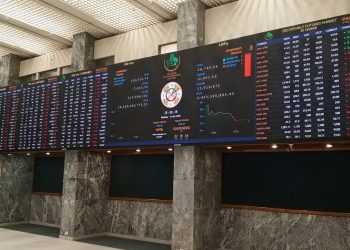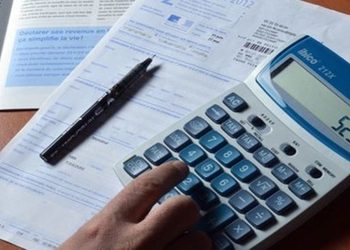The Sensitive Price Index (SPI), which measures short-term inflation, increased to 38.42% year over year (YoY) for the week ending February 16 mainly due to rising food and fuel prices, data shared by the Pakistan Bureau of Statistics (PBS) showed on Friday.
Last week, short-term inflation was recorded at 34.83pc year-on-year.
On a week-on-week basis, SPI increased 2.89pc compared to a rise of 0.17pc in the preceding week. This is the highest weekly rise since October 27.
The SPI monitors the prices of 51 essential items based on a survey of 50 markets in 17 cities across the country. During the week under review, the prices of 34 items increased and five decreased while 12 remained unchanged.
The items which recorded a decrease in their average prices on a week-on-week (WoW) included tomatoes (14.27%), onions (13.48%), eggs (4.24%), garlic (2.10%) and wheat flour (0.10%).
The items which recorded an increase in their average prices on week-on-week (WoW) basis included cooking oil 5 litre (8.65%), vegetable ghee 1 kg (8.02%), bananas (8.01%), chicken (7.49%), vegetable ghee 2.5 kg (6.76%), non-food items, petrol (8.82%), diesel (6.49%) and cigarettes (6.18%).
On a Year-on-Year (YoY) basis, the commodities which recorded a decrease in their average prices included tomatoes (65.30%), electricity for Quarter 1 (7.50%) and chillies powdered (7.42%).
The commodities that witnessed an increase in prices on a YoY basis included, onions (433.44%), chicken (101.86%), diesel (81.36%), eggs (81.22%), rice irri-6/9 (74.12%), rice basmati broken (73.05%), petrol (69.87%), pulse moong (67.98%), bananas (67.68%), tea packet (63.89%), pulse gram (56.93%), bread (55.36%), pulse mash (53.42%), LPG (52.68%) and cigarettes (50.02%).
Inflation has been driven in part due to the devastating floods last year that destroyed swathes of agricultural land, leading to a shortage of some food items. Separately, importers have had trouble getting banks to open letters of credit (LCs) as the country’s foreign exchange reserves depleted to a critically low level. This also drove up the prices of essential items, including flour and pulses, in recent weeks.
Inflation is expected to increase further in the coming months as the government implements conditions agreed upon with the International Monetary Fund (IMF) for an economic bailout, including a hike in electricity and gas prices.



































